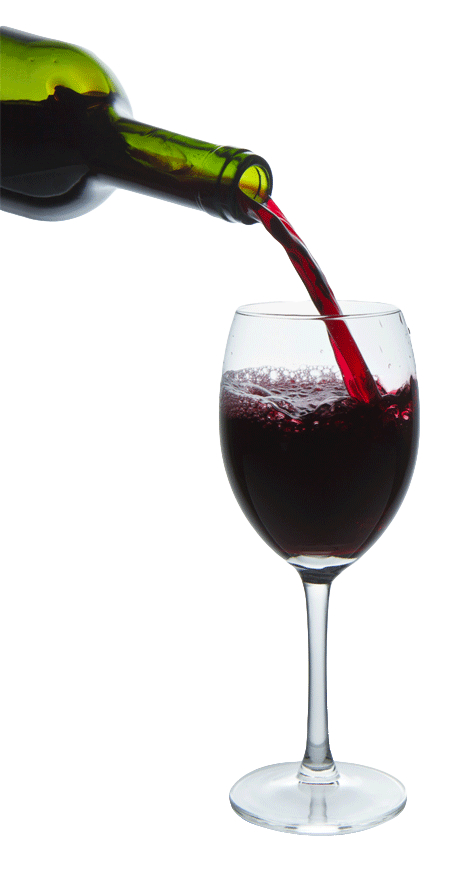Wine~Works
Wine & Beer Tastings with a Difference

Johnson Celebrates 40 Years of Wine Guides
Hugh Johnson's wine guide was the first wine book that I purchased way back in the 1980's.
In February, Hugh Johnson addressed the lecture theater of the Culinary Institute of America in Napa.
In the dramatic, steeply-raked auditorium, Johnson, in a long sleeveless waistcoat that looked faintly Afghan, spoke for 40 minutes, amiably meandering his way through the last half century or so of popping corks and wielding knife and fork. The audience sat relaxed but rapt; the veteran wine critic speaks in public as if he's sitting at a kitchen table covered with open bottles, corkscrew in hand. It's a rare skill.
ohnson is a prolific writer (and tweeter). The first article he ever published was in Vogue in 1960. It begins: "Talking turkey to a number of people who know their minds about wine , I was struck by the confusion that surrounds this inescapable bird." You can just hear him, can't you? The laconic, slightly amused, drawing-room tone is there already, and it's changed little over the years.
Zoom forward six decades and he's writing sentences like this (on the hoo-ha over the great 2015 vintage): "What an industry! Imagine if Stuttgart partied every time they made a batch of cars that started!" Elsewhere he calls Port and Sherry "cockle warmers to export to shivering northerners". He's endlessly quotable.
Those quotations above are from the foreword to Hugh Johnson's Pocket Wine Book 2017 (Mitchell Beazley, £11.99/$16.99), now in its 40th edition, with 12 million copies sold. It's a satisfying, heavy little tome, dense with facts, all of it shot through with Johnson's neat way with a phrase. He sums up the dynamism of California by noticing the "extraordinary numbers of fanatical winemakers in deadly earnest". In Switzerland he notes "the savvy of the Swiss themselves", keeping prices high and the grapes obscure. He skewers fads – when he uses the words "irrationally fashionable" you know what's coming and, sure enough, the following paragraph is about natural wines and concludes with "seasoned drinkers don't get carried away". There's a steely eye behind those friendly half-moon spectacles.
The Pocket Wine Book is now put together by a couple of dozen critics, journalists and MWs, many of them eminent. Under the editorship of Margaret Rand they are assigned sections and they add and prune as necessary. They aim to change a minimum 25 per cent of copy every year. Johnson goes through it with a "fine-tooth comb", Rand tells me. It's clear he does. His wit and erudition run through the book like the lettering in a stick of Brighton rock.
That style was honed writing columns, dozens of them, thousands it must be, for Vogue, About Town, the Sunday Times, Decanter, World of Fine Wine and many others on both sides of the Atlantic. Hugh Johnson on Wine (Mitchell Beazley, £20) is subtitled "Good bits from 55 years of scribbling".
There's a nugget on every page. An article chosen at random is from the early '80s and asks: "Three hundred, six hundred pounds a bottle? How much can wine fresh from a producer possibly be worth?" Another page, and it's a 1994 broadside against Robert Parker. The critic (at the height of his powers at that stage) is castigated as a bore and mocked for his prolixity. "To RP big is good; huge is great. What could be simpler? But why does he take so long to say so?" As I said, that mild exterior conceals steel.
Johnson has added chatty margin notes. "I do hope I'm not repeating myself", he says of his stiletto-job on Parker. But the articles and book extracts need no updating. Comments made more than 30 years ago are still perfectly reliable. How much indeed can a new wine be worth? Even when a comment is dated, it's usually notable for its timeliness in predicting (or deploring) a trend. He's always been a champion of the artisan – he's written about the Slow Food movement from its beginnings, and he generally sides with the small, the slow and the painstaking. He looks with a hint of disapproval on tasting marathons. "You have to go back to a wine, again and again," he's fond of saying.
Fittingly, Johnson is also a gardener of national renown, creating a splendid arboretum and gardens at Saling Hall, the Elizabethan manor house he bought in the 1970s and lived in until 2011. "The parallel pleasures of wine and gardening are obvious," he wrote in 2002. "The exercise of taste, enjoying the productions of nature, and the element of time. Both are moving targets. A garden is as much a process as a place."
Above all, he's a master of the vivid description. The valley of the Ebro is "open, austere, a great hammock slung between the snows of two Sierras". On the Tuscany of old: "the black-clad contadini planting, cultivating and cropping with hardly a pause". The sentences roll on the tongue like rich Brunello. And they can be brief as a haiku. In the Pocket Wine Book, producers are described (or filleted) in a sentence. Here's Marojallia: "Micro-château looking for big prices for big, rich, un-Margaux-like wines. Less full-throttle from 2011." Or the ultra-modern Baigorri in Rioja: "Wines as glamorous as the glassy architecture."
In one early column, the author described himself as having "one foot in the cellar and the other in the potting shed". It's a fine image of a man who has measured out his life with trowel and corkscrew – and pen, of course.







07707 321587 - Charles